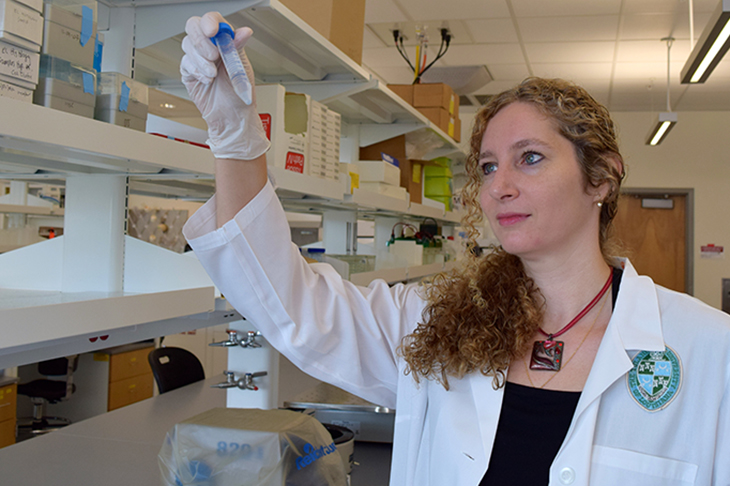Unraveling the link between diabetes and the brain

Andrea Zsombok, assistant professor of physiology in the Tulane School of Medicine, investigates how neurons in the brain regulate glucose levels in the body. She"s ultimately looking for ways to help people suffering from diabetes. (Photo by Carlos Avrard)
When diabetes strikes, the brain is not the first thing that comes to mind.
But the brain is essential in the body"s communication circuitry and in diabetes something is “off” in that circuitry.
Andrea Zsombok, assistant professor of physiology in the Tulane University School of Medicine, is investigating the brain"s role in regulating and maintaining glucose levels in the body.
“The brain has so much potential and so many things we have no idea about,” said Zsombok. “It"s amazing.”
She"s particularly studying the neurons specialized cells in the brain transmitting nerve impulses that convey to the liver the need to store or release sugar.
Diabetes is a disease associated with high blood sugar levels. Sugar (or glucose) is blocked from proper use in the body because the pancreas does not release insulin or the body can"t use its own insulin as well as it should. In addition, the liver, which also is responsible for storing and making glucose, plays an important role in the maintenance of sugar levels.
Zsombok studies brain activity in the hypothalamus, the site of control of all the autonomic functions of the body, such as body temperature and blood pressure and glucose levels.
She"s looking into how neurons associated with the liver function normally. She then records what happens during diabetes when the neurons are not acting properly.
“We are interested in thinking about how we can prevent or reverse this change of the neuron during diabetes,” said Zsombok.
Her work on how the brain controls glucose homeostasis is supported by the National Institutes of Health. Her research has been published in the Journals of the American Diabetes Association. Recently, her laboratory"s latest findings were presented at the Experimental Biology conference in Boston.
Her goal is to help people with diabetes and ultimately find a way to restore neurons gone awry in people suffering from the disease.
“Hopefully, we will succeed in that way,” she said.
